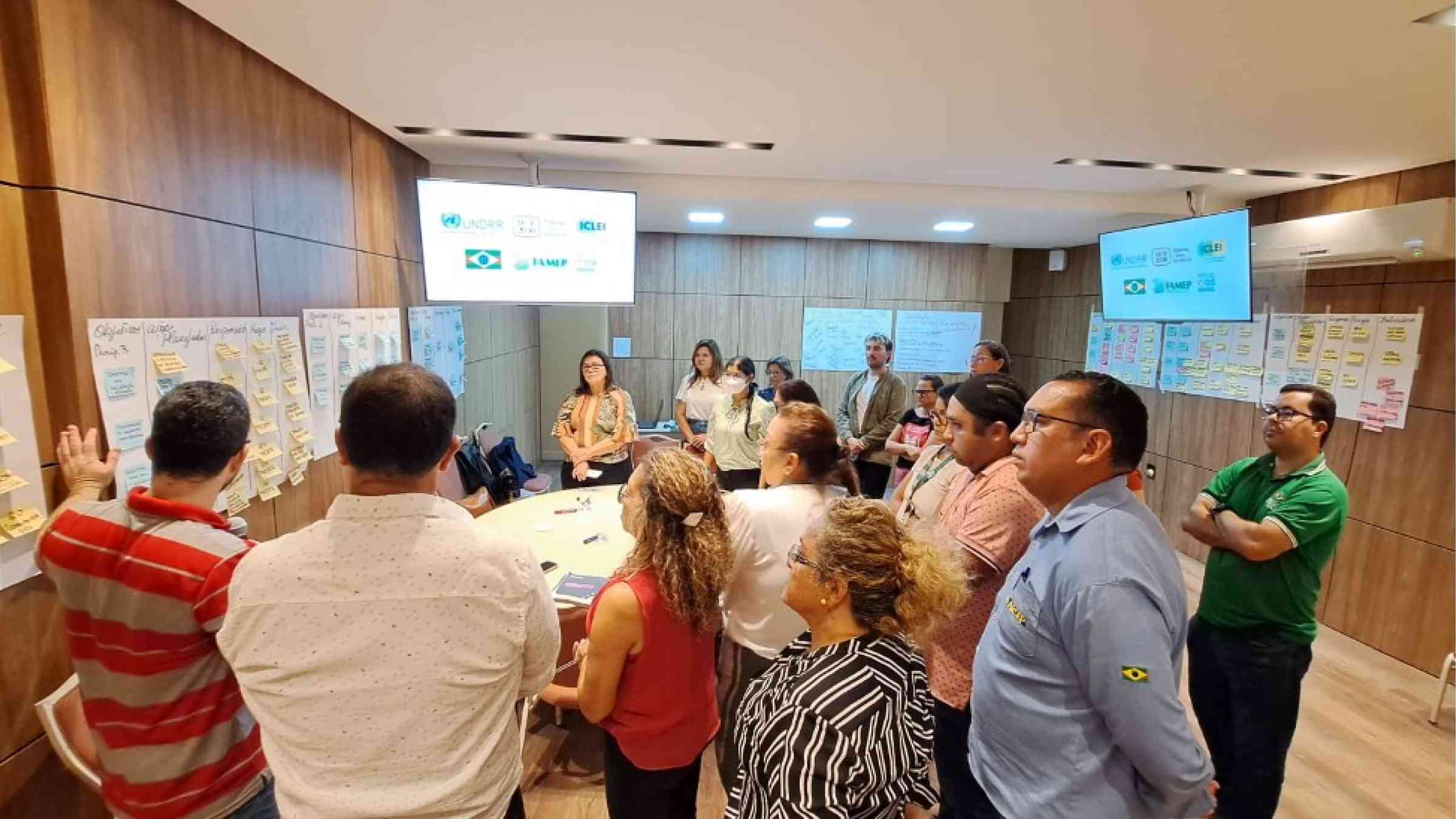MCR2030 and ICLEI sensitize Amazonian cities in Pará to climate and disaster resilience and build capacities in the use of risk assessment and planning tools

On October 25, representatives of the UNDRR Regional Office for the Americas and the Caribbean and ICLEI South America participated in the event co-organized with the City of Barcarena, a member of the Making Cities Resilient 2030 initiative, to raise awareness of local resilience and disaster risk reduction in the municipalities of the Pará State, Brazil.
According to the last demographic census conducted by the IBGE, 78.9% of the Northern region’s population already lived in cities in 2010. Municipalities in the region face continuously increasing risks of disasters related to the intensification of extractive activities and the impacts of climate change (increased risk of droughts and flooding related to sea level rise).
Opening the event, the Mayor of Barcarena, Renato Ogawa, highlighted that issues such as disaster prevention and climate change are still little known and discussed in the municipalities of Pará and that a greater engagement of decision makers on urban resilience and sustainability was necessary. In this sense, with the objective making Barcarena a resilient city, together with the vice mayor Cristina Vilaça, he ratified the political commitment acquired by the city with the MCR2030 initiative.

Cristina Vilaça, Vice Mayor of Barcarena; Renato Ogawa, Mayor of Barcarena; and Clément Da Cruz, MCR2030 Technical Advisor. Source: UNDRR
During the event, the municipalities had the opportunity to complete UNDRR's Quick Risk Estimation Tool. In the town of Ataetetuba, in Baixo Tocantins, for example, the tool revealed an increased likelihood and intensity of riverine flooding events, along with a high social vulnerability to epidemiological risks. In Barcarena, participants highlighted the city's high exposure to severe anthropogenic risks related to industries, together with intensifying climate risks.
Following the event, on 26 and 27, members of the Barcarena Disaster Risk Reduction (DRR) and Resilience Committee participated in the technical assistance workshop for the use of the "Scorecard" tool to assess their disaster resilience governance capacities.
The tool developed by UNDRR allowed the city to map the gaps in municipal risk management, identify priorities for improvement, and plan actions to mitigate them in the form of an Action Plan for DRR and Resilience based on the Sendai Framework. In the coming weeks, the Committee will move forward with finalizing the Plan and defining resilience actions.
The events were supported by the ODS Brazil Network and the Federation of Associations of Municipalities of the State of Pará (FAMEP); open remarks were given by Adriana Campelo, Regional Coordinator of MCR2030 in the Americas and the Caribbean; Bráulio Diaz, Institutional Relations and Advocacy Manager of ICLEI South America; and facilitation was carried out by Clément Da Cruz, Technical Advisor of MCR2030, and Keila Ferreira, Resilience Coordinator at ICLEI South America.

